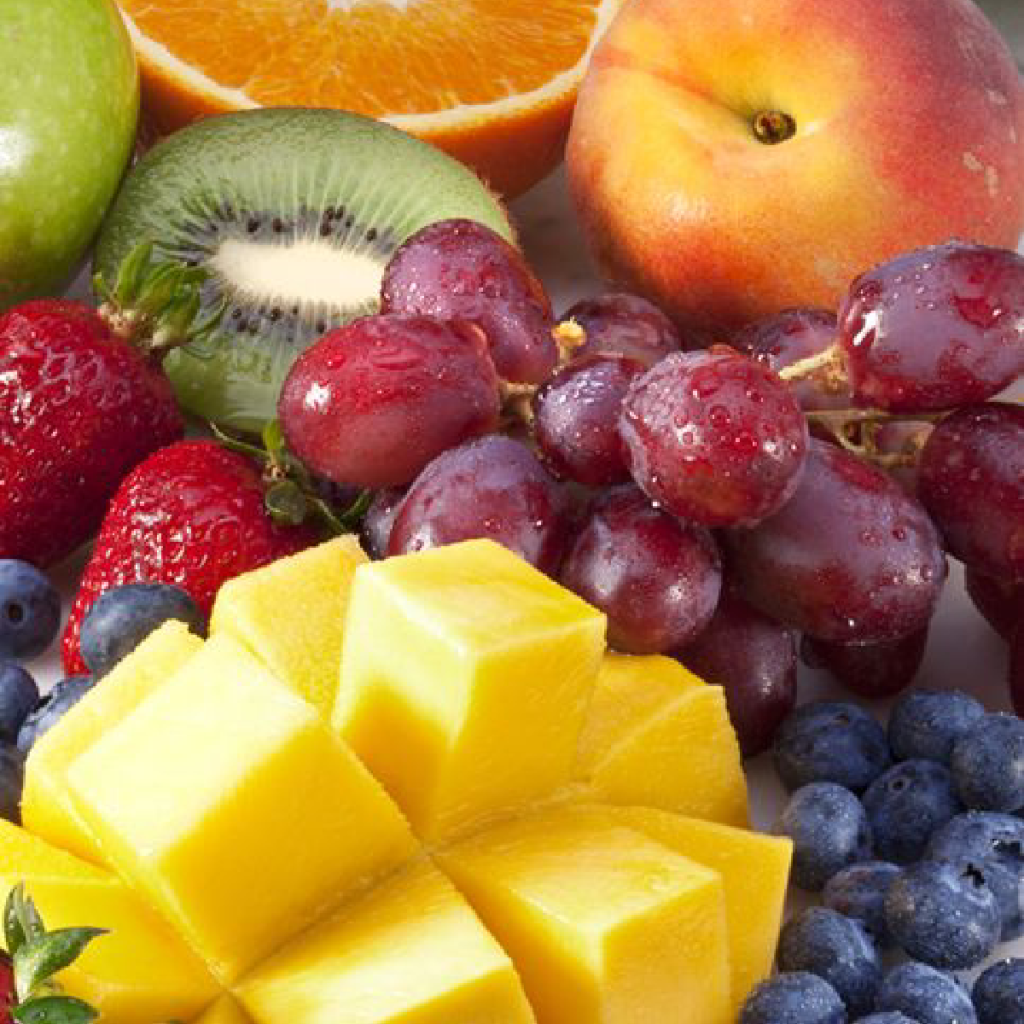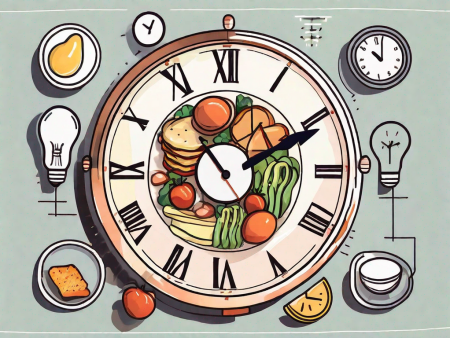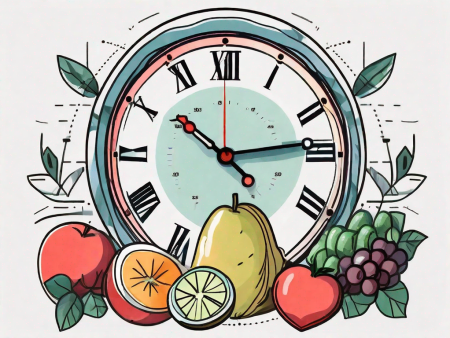Discover the fascinating connection between antioxidants and metabolism in this informative article.
How Do Antioxidants Impact Metabolism?
We all know that antioxidants are good for us, but have you ever wondered how they actually impact our metabolism? Understanding this connection can help us make informed choices about our diet and overall health. In this article, we’ll delve into the fascinating world of antioxidants and discover how they play a crucial role in our metabolic process. So grab a cup of antioxidant-rich tea and let’s dive in!

Understanding Antioxidants
Before we explore their impact on metabolism, let’s first define what antioxidants are and the types that exist. Antioxidants are compounds that protect our cells from damage caused by harmful molecules known as free radicals. They work like superheroes, swooping in to neutralize those pesky free radicals and prevent them from wreaking havoc in our bodies.
Free radicals are highly reactive molecules that can cause damage to our cells, DNA, and proteins. They are produced naturally in our bodies as a byproduct of various metabolic processes, but they can also be generated by external factors such as pollution, cigarette smoke, and radiation. When free radicals accumulate in our bodies, they can contribute to the development of various diseases, including cancer, heart disease, and aging.
Now, let’s dive deeper into the fascinating world of antioxidants and explore the different types that exist.
Definition and Types of Antioxidants
Antioxidants come in various forms, each with its own special powers. Some common types include vitamins C and E, beta-carotene, and selenium. These mighty antioxidants are found in a wide array of foods, from colorful fruits and vegetables to nuts and seeds.
Vitamin C, also known as ascorbic acid, is a water-soluble antioxidant that plays a crucial role in protecting our cells from oxidative stress. It is found abundantly in citrus fruits, strawberries, kiwi, and bell peppers. Vitamin E, on the other hand, is a fat-soluble antioxidant that helps protect our cell membranes from damage. It can be found in nuts, seeds, and vegetable oils.
Beta-carotene is a pigment that gives fruits and vegetables their vibrant colors, such as carrots, sweet potatoes, and spinach. Once consumed, our bodies convert beta-carotene into vitamin A, which acts as a powerful antioxidant. Selenium, a trace mineral, is another essential antioxidant that helps protect our cells from oxidative damage. It can be found in foods like brazil nuts, seafood, and whole grains.
Each type of antioxidant has its own unique mechanism of action and benefits for our health. By consuming a diverse range of antioxidant-rich foods, we can ensure that our bodies receive a wide spectrum of these protective compounds.
The Role of Antioxidants in the Body
Now that we have an idea of what antioxidants are and the types that exist, let’s explore their role in our body. Besides fighting off free radicals, antioxidants also help boost our immune system and reduce inflammation. They play an important role in maintaining overall health and well-being.
When our bodies are exposed to stress, whether it’s physical, environmental, or emotional, it can lead to an increase in free radicals. This is where antioxidants come to the rescue. By neutralizing free radicals, antioxidants help prevent oxidative damage and reduce the risk of chronic diseases.
In addition to their protective role, antioxidants also support our immune system by enhancing the function of immune cells. They help strengthen our body’s defense mechanisms, making us more resilient to infections and diseases.
Furthermore, antioxidants have anti-inflammatory properties, which can help reduce inflammation in our bodies. Chronic inflammation is associated with various health conditions, including arthritis, heart disease, and certain types of cancer. By reducing inflammation, antioxidants contribute to the prevention and management of these conditions.
It’s important to note that while antioxidants are beneficial for our health, they are not a magic cure-all. A balanced diet, rich in a variety of fruits, vegetables, whole grains, and lean proteins, is key to obtaining a wide range of antioxidants and other essential nutrients.
In conclusion, antioxidants are powerful compounds that protect our cells from damage caused by free radicals. They come in various forms, including vitamins C and E, beta-carotene, and selenium. By consuming a diverse range of antioxidant-rich foods, we can harness the benefits of these superheroes and support our overall health and well-being.
The Metabolic Process
Now that we have a good grasp of antioxidants, let’s shift our focus to the metabolic process and how it relates to antioxidants.
An Overview of Metabolism
Metabolism is the complex set of chemical reactions that occur in our body to convert food and drink into energy. Think of it as a bustling factory that tirelessly works to break down nutrients and produce the energy our body needs to function.
Within our cells, metabolism involves two main processes: catabolism and anabolism. Catabolism is the breakdown of larger molecules into smaller ones, releasing energy in the process. Anabolism, on the other hand, is the synthesis of larger molecules from smaller ones, requiring energy input. Together, these processes maintain a delicate balance in our body, ensuring that energy is produced and utilized efficiently.
Metabolism is not a one-size-fits-all process. It varies from person to person, influenced by a variety of factors such as age, gender, genetics, and activity level. For example, younger individuals tend to have a higher metabolic rate due to their faster growth and higher energy demands. Similarly, men generally have a higher metabolic rate than women, as they typically have more muscle mass, which requires more energy to maintain.
Factors Influencing Metabolism
Many factors can influence our metabolism, such as age, gender, genetics, and activity level. But did you know that antioxidants also play a role in this intricate dance? Yes, they do! Next, we’ll explore how antioxidants affect our metabolic rate and energy production.
Antioxidants are compounds that help protect our cells from damage caused by harmful molecules called free radicals. These free radicals are produced as byproducts of various metabolic reactions in our body, as well as through exposure to environmental factors such as pollution and UV radiation. If left unchecked, free radicals can wreak havoc on our cells, leading to oxidative stress and potentially contributing to the development of chronic diseases.
Fortunately, antioxidants come to the rescue! They neutralize free radicals, preventing them from causing harm. In doing so, antioxidants help maintain the integrity of our cells and support overall health. But their benefits don’t stop there. Research suggests that antioxidants may also influence our metabolic rate and energy production.
One way antioxidants may impact metabolism is by reducing oxidative stress. When our cells are under oxidative stress, their ability to produce energy efficiently may be compromised. By neutralizing free radicals, antioxidants help alleviate oxidative stress and promote optimal cellular function, including energy production.
Furthermore, antioxidants have been found to have a positive effect on mitochondrial function. Mitochondria are often referred to as the “powerhouses” of our cells, as they are responsible for generating the majority of our cellular energy in the form of adenosine triphosphate (ATP). Studies have shown that antioxidants can enhance mitochondrial function, leading to increased energy production and a more efficient metabolism.
It’s important to note that while antioxidants have the potential to support our metabolic processes, they are not a magic solution for weight loss or a substitute for a healthy lifestyle. Maintaining a balanced diet, engaging in regular physical activity, and getting enough sleep are still key factors in optimizing metabolism and overall well-being.
In conclusion, the metabolic process is a fascinating and intricate dance of chemical reactions that convert food and drink into energy. Factors such as age, gender, genetics, and activity level can influence our metabolism, and antioxidants play a role in supporting optimal metabolic function. By neutralizing free radicals and promoting cellular health, antioxidants contribute to efficient energy production and overall well-being. So, next time you enjoy a meal rich in antioxidants, remember the important role they play in your body’s metabolic factory.
The Connection Between Antioxidants and Metabolism
Ah, the moment we’ve all been waiting for! How exactly do antioxidants impact our metabolism? Let’s find out!
But first, let’s take a step back and understand what metabolism really is. Metabolism refers to all the chemical processes that occur within our bodies to maintain life. It’s the rate at which our body burns calories to produce energy and perform various functions.
Now, let’s dive into the fascinating world of antioxidants and their effect on our metabolic rate.
How Antioxidants Affect Metabolic Rate
Research suggests that antioxidants can help increase our metabolic rate, which is the rate at which our body burns calories. But how does this happen?
Well, antioxidants work by neutralizing harmful molecules called free radicals. These free radicals can damage our cells and DNA, leading to oxidative stress. When our body experiences oxidative stress, it can disrupt the normal functioning of our metabolism.
By supporting a healthy metabolism, antioxidants can potentially aid in weight management and overall energy levels. When our metabolic rate is optimized, we can efficiently convert the food we eat into energy, rather than storing it as fat.
But that’s not all! Antioxidants also play a crucial role in regulating our appetite. Research has shown that certain antioxidants, such as polyphenols found in fruits and vegetables, can help suppress appetite and reduce cravings. This can further contribute to weight management and overall metabolic health.
Antioxidants and Energy Production
Our metabolism’s primary goal is to produce energy, and antioxidants lend a helping hand in this process. But how exactly do they do it?
Well, as mentioned earlier, antioxidants neutralize free radicals and reduce oxidative stress. By doing so, they create a more efficient environment for energy production within our cells.
Think of our cells as tiny powerhouses. They have organelles called mitochondria, which are responsible for generating energy in the form of ATP (adenosine triphosphate). However, during the process of energy production, free radicals are also produced as byproducts.
Here’s where antioxidants come to the rescue! By neutralizing these free radicals, antioxidants prevent them from causing damage to the mitochondria and disrupting the energy production process. This allows our energy factories to run smoothly, ensuring a steady supply of energy for our body’s needs.
So, the more antioxidants we consume, the better equipped our cells are to produce energy efficiently. This can result in increased stamina, improved physical performance, and enhanced overall vitality.
Now that we understand the fascinating connection between antioxidants and metabolism, it’s clear that incorporating antioxidant-rich foods into our diet is essential for maintaining a healthy and efficient metabolism.
So, let’s raise a glass of green tea, munch on some berries, and savor the vibrant colors of fruits and vegetables to give our metabolism the antioxidant boost it deserves!
The Benefits of Antioxidants for Metabolism
Now that we understand how antioxidants impact our metabolism, let’s delve into the wonderful benefits they offer.
Antioxidants and Weight Management
Maintaining a healthy weight is high on our priority list, and antioxidants can be fantastic allies in this quest. By boosting our metabolic rate and supporting efficient energy production, antioxidants can potentially help us shed unwanted pounds and maintain a healthy body composition.
Antioxidants and Metabolic Health
Metabolic health is about more than just weight. It encompasses various aspects, such as blood sugar control, cholesterol levels, and overall well-being. Antioxidants have been shown to have a positive impact on these markers of metabolic health, helping us achieve optimal wellness.
Incorporating Antioxidants into Your Diet
Now that we’re fully convinced about the wonders of antioxidants, let’s explore how we can incorporate them into our daily diet.

Foods Rich in Antioxidants
One of the easiest and most delicious ways to increase your antioxidant intake is by consuming a rainbow of fruits and vegetables. Berries, spinach, kale, and bell peppers are just a few examples of antioxidant-packed choices. Don’t forget about nuts, seeds, and whole grains too, as they also offer a healthy dose of these powerful compounds.
Supplements vs. Natural Sources of Antioxidants
While supplements can be convenient, it’s always best to get our antioxidants from natural food sources. The synergy of various antioxidants found in whole foods ensures we receive the full range of benefits. So, load up your plate with colorful, nutrient-rich foods, and let nature do its antioxidant magic!
In conclusion, antioxidants and metabolism share a beautiful dance, with each influencing the other in a harmonious way. By consuming antioxidant-rich foods and adopting a healthy lifestyle, we can tap into the incredible benefits they offer for our metabolism and overall well-being. So, let’s embrace the antioxidant superheroes and power up our metabolism for a vibrant, energized life!







